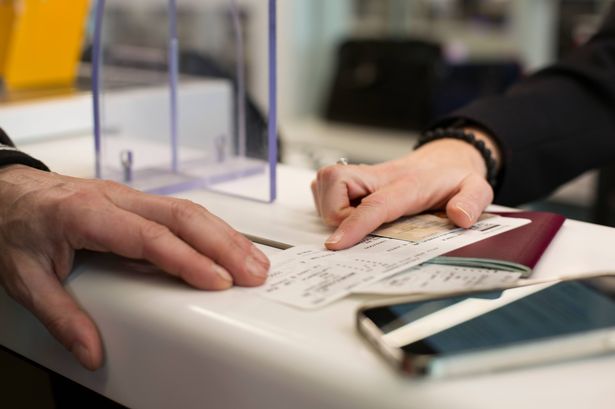Most UK holidaymakers will also have to pay a fee before jetting off
Brits heading to EU nations such as Italy, Spain or France may soon have to undertake an interview before permission to enter is granted. It’s all to do with new rules that will soon come in following Brexit.
Once a new scheme gets underway, UK passport holders will need a travel permit to visit any part of the Schengen area, made up of 25 EU countries and four additional nations. EU leaders have stated that the European Travel Information and Authorisation System (ETIAS) is being introduced to enhance security and the borders of the Schengen zone.
The implementation of the scheme has been delayed several times, but according to the latest update, UK travellers won’t require one for EU travel until at least April 2027. The EU’s Directorate-General for Migration and Home Affairs announced earlier this year that the ETIAS will be launched in the final quarter of 2026, and due to a transitional and grace period, the requirement to apply for an ETIAS before departure won’t become mandatory until 2027.
READ MORE: I’ve been to 30 countries and there are six cities in Europe I’d never revisitREAD MORE: ‘Tourists at my Majorca hotel race for sunbeds – but I show them there’s no point’
The roll-out of ETIAS is tied to the introduction of the Entry/Exit System (EES), and each permit will cost 20 euros. It will be necessary for travel to and within the following countries: Austria, Belgium, Bulgaria, Croatia, Czechia, Denmark, Estonia, Finland, France, Germany, Greece, Hungary, Iceland, Italy, Latvia, Liechtenstein, Lithuania, Luxembourg, Malta, Netherlands, Norway, Poland, Portugal, Romania, Slovakia, Slovenia, Spain, Sweden, Switzerland.
With a valid ETIAS, you can make multiple trips into the territories of the participating European nations for short stays, typically up to 90 days within any 180-day period. However, it doesn’t automatically mean you’ll be allowed in.
At the border, officials will check your passport and other documents to confirm you satisfy the entry requirements. Most ETIAS applications are to be processed and approved “almost immediately”, but some could be turned down.
One reason for this, according to SchengenVisaInfo, is if you are invited for an interview and do not attend. While most ETIAS applicants will not need an interview, some may require a manual review due to mistakes or potential issues.
Other reasons an ETIAS may be refused include not having a valid passport, not filling out the application properly, being flagged as a “risk”, or having a flag against your name in the Schengen Information System (SIS).
Any ETIAS application refusals can be appealed.
